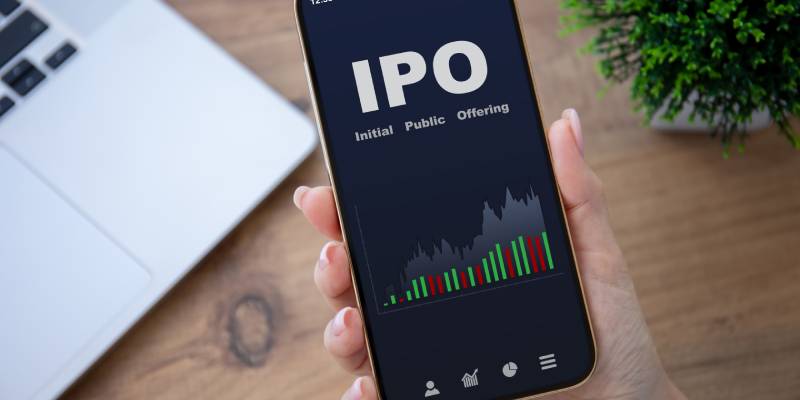IPU is the latest buzzword in the world of trade finance. Irrevocable Payment Undertaking (IPU) was also widely discussed in the latest Trade and Export Finance webinar. So, here are my two cents on this funding practice and my analysis of its pros and cons to the business world.
What’s An IPU & How Does it Work?
In simple terms, an IPU is a payment method where the Buyer of the services or goods makes a payment obligation to the seller rather than a third party like a guarantor or a financier. This can be seen as a strength because it is simpler and faster for the seller to regain the money.
Irrevocable payment undertakings (IPUs) are financial instruments that secure receivables arising under sales and service contracts and other commercial agreements. However, it should be understood that IPUs are not replacements for promissory notes (PNs), although an IPU can be created using a promissory note or a bill of exchange.
IPUs and PNs are likely confused, so let’s clear the air about these two methods. A Promissory Note is an irrevocable promise to pay and is usually connected to another transaction but separate from it.
On the other hand, an IPU represents a promise to pay under a commercial agreement. The IPUs are waivers of Buyer’s rights, an agreement to pay without withholding, deduction, setting off, or counterclaiming. In this context, the Buyer’s rights cannot be waived for claiming faulty goods.
Another significant difference with IPUs is that they are trade debts, not bank debts. An IPU can only be seen as a bankable undertaking, but NOT AS A BANK DEBT. This can help to avoid any potential issues with recharacterisation.
A typical IPU statement will read like this: “I irrevocably agree to pay you the due amount mentioned in this invoice without any right to make deductions, withhold payment, or set off or counterclaim in respect of the amount due.”
However, although this financial undertaking paints a rosy picture, in my opinion, there can be problems with IPUs if the Buyer fails to make the payment. It is imperative that we discuss the roadblocks one could face with IPUs.
Also Read: Redesigning Trade and Trade Finance Using Blockchain To Boost Revenue
Issues Associated with IPUs
Generally, most finance experts point to the four issues pertaining to Irrevocable Payment Undertaking. I have analysed each one in detail.
Laws applicable to the IPU.
An IPU’s business value or whether an IPU is worth signing by a Buyer;
Reclassification of trade debt to bank debt.
Transferability of IPUs.
- IPU-related laws and their issues.
There is a need for a separate set of rules or guidelines for IPUs. In my observation, the irrevocable nature of the payment obligation should be specified in the relevant commercial contract. Furthermore, the enforceability of such undertakings depends on applicable law since it’s up to the relevant court to interpret the undertaking.
There are a couple of ways courts may interpret the IPU:
- The undertaking does not necessarily need to be a separate instrument. At the end of the day, the seller wants the Buyer to say, “I will irrevocably pay you this amount for the goods or services.” This statement (or something similar) could either be included in an invoice acknowledgement or it could be included in the contract itself. The goal here is not to create an independent instrument but to demonstrate what an IPU is. If the IPU is included in a contract, it will be governed by the laws of the underlying contract.
- By giving the IPU Statement, a Buyer would be committing to paying taxes, credit notes, or other forms of payment without deducting anything from the payment, regardless of what laws apply. Since it improves the bankability of receivables, an IPU is highly valuable as a receivable financing tool.
Now, my question is, how would we look at the Buyer’s liability if the Buyer doesn’t pay under the IPU? If you don’t specify a law to govern the IPU, it’s assumed that the underlying contract law will apply.
- Business Value of IPUs
In providing the Sample IPU Statement, the Buyer gives up the rights he would otherwise have. This raises questions about the IPUs’ ability to make money. It seems that a potential Buyer would want to see more financial stability before investing in an IPU.
Consequently, an IPU can prevent the Buyer from not paying an invoice, but it cannot prevent the Buyer from suing the seller for defective goods. Additionally, the Buyer may be interested in receiving a sample IPU Statement if they understand the bankability of such a statement.
- Reclassification of trade debt to bank debt.
The Specimen IPU Statement may change the debt from trade debt to bank debt if given to the financier. This move could significantly impact the company’s finances, as bank debt is typically more expensive than trade debt. To avoid such risks, the IPU statement must be handed over to the seller, who can use this part of the trade debt and give it to someone else to get a loan.
Is a financier’s intervention likely to change this characteristic? My analysis concludes that changing the IPU’s characteristics needs to be addressed in the Paper. The discussion should elaborate on whether or not the trade debt becomes a bank debt if the IPU statement is handed over to or is in the hands of the financier. The Paper can, in fact, influence the grounds that fortify the IPU as a trade debt.
- Transferability of IPUs.
Assignability/transferability should eliminate the need for the financer to directly receive the IPU.
IPU: Goals & Requirements
The goal of including supply chain information in notes is to help users understand how the arrangements between the entity and its suppliers affect liabilities and cash flows. To do this, the IAS and IFRS require entities to disclose impractical information. For payables financing programs, tenors can’t exceed 180 days, and parties can negotiate payment terms. This helps users understand the effects of these arrangements on the entity’s financial statements.
The UNCITRAL Electronic Transferable Records Model Law (2017) (MLETR) defines “electronic record” broadly and may help Bahrain, Abu Dhabi, and Singapore Capital Markets by defining the term. However, MLETR signatures may not meet AES/QES standards and don’t address possession.
The Digital Trade Law Commission is planning to repeal England’s largest electronic trade goal law this year or early in 2023. The proposed law would redefine “possession” to include intangible trade documents. This will allow for the uniform regulation of digital payment obligations (URTEPO). When people sell or buy transferable electronic payment obligations, URTEPO will tell them when they can look at records and their rights and responsibilities.
Conclusion
As technology advances and trade expands, trade groups are making it easier for businesses to use Paper and digital IPUs. Geoffrey Wynne suggests waiting to see how English law adapts to these changes before requiring contract law. This will ensure that businesses have the best possible experience when trading.
Trade finance advice provides regular updates on articles related to trade finance organizations. For more articles, please visit our website.



